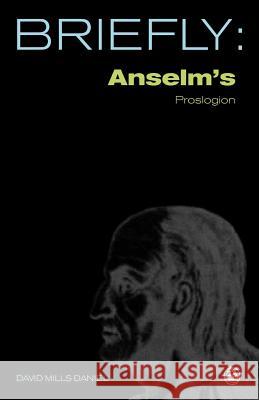Anselm's Proslogion » książka
Anselm's Proslogion
ISBN-13: 9780334040385 / Angielski / Miękka / 2006 / 96 str.
St Anselm (1033-1109) was an Italian theologian and philosopher and the Archbishop of Canterbury from 1093-1097. He is best known for his work, Proslogion, in which he defends the Church and sets out his philosophy and argument for the existence of God, now known as the Ontological Argument. OA is now a commonly studied subject at schools and universities, yet this critical, original treatise outlining the OA is often misunderstood by readers. Here in the Briefly text, the author guides the reader through Anselm's argument concerning existence and whether it is an attribute of God in the same way omnipotence, omniscience and benevolence are believed to be. As such the argument is an a priori argument. It does not rest on proving God's existence from the empirical realm but on showing that God must exist logically (or that God's non-existence is illogical).The main idea behind Anselm's argument is that epistemology (what we know) IS ontology (what there is); or, that if it is possible to conceive of X, then X must surely exist.
St Anselm (1033-1109) was an Italian theologian and philosopher and the Archbishop of Canterbury from 1093-1097. He is best known for his work, Proslogion, in which he defends the Church and sets out his philosophy and argument for the existence of God, now known as the Ontological Argument. OA is now a commonly studied subject at schools and universities, yet this critical, original treatise outlining the OA is often misunderstood by readers. Here in the Briefly text, the author guides the reader through Anselms argument concerning existence and whether it is an attribute of God in the same way omnipotence, omniscience and benevolence are believed to be. As such the argument is an a priori argument. It does not rest on proving Gods existence from the empirical realm but on showing that God must exist logically (or that Gods non-existence is illogical).The main idea behind Anselms argument is that epistemology (what we know) IS ontology (what there is); or, that if it is possible to conceive of X, then X must surely exist.











